In Living Memory — an exhibition based on photographs from NSW Aborigines Welfare Board (1919-1966) — opened to the public at State Records Gallery in The Rocks on 8 September 2006. The exhibition was so well received that it was extended twice and a separate touring version has been travelling to 18 venues around New South Wales for the last 2 1/2 years.
The exhibition has toured to Aboriginal cultural and community centres and regional art galleries, museums and libraries in towns and cities throughout New South Wales, including Moree, Walgett, Brewarrina, Quirindi, Armidale, Ballina, Kempsey, Newcastle, Moruya, Bega, Wagga Wagga, Cootamundra, Dubbo and Griffith, as well as galleries in Penrith and Hurstville in Sydney.
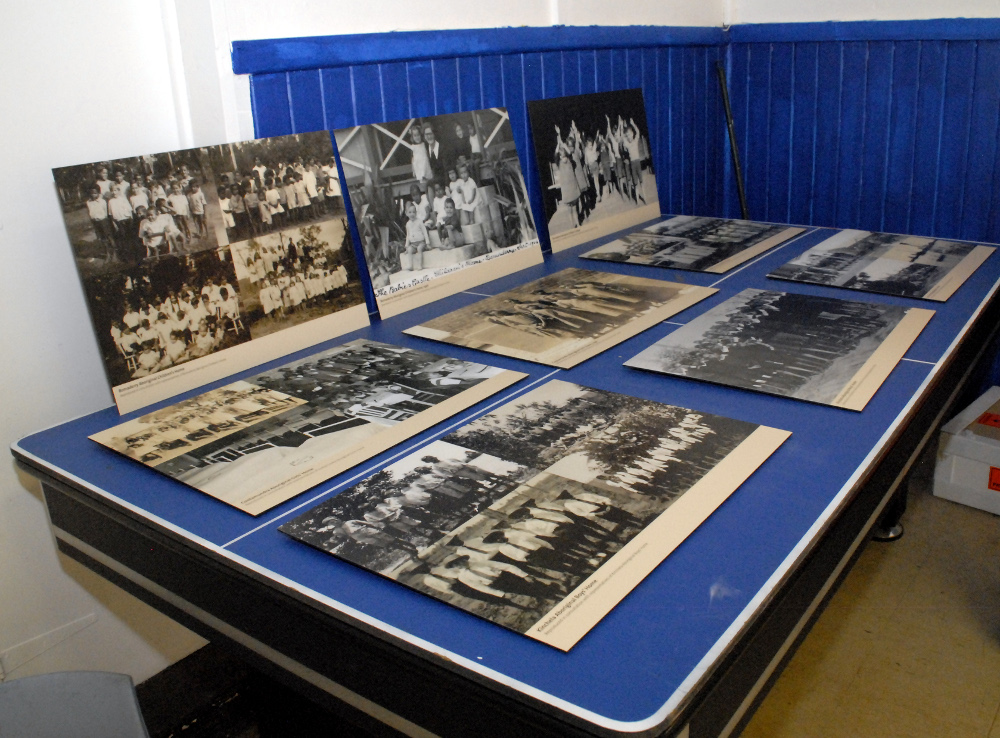
Suitcase version displayed on pool table in Murrin Bridge near Griffith. Photographer: Mervyn Bishop.
The final tour venue is Broken Hill from today, 10 September until 17 October 2010. While the exhibition team are out West, they are also taking a small 25-piece ‘suitcase’ version to communities in Menindee and Wilcannia.
The Tour Format
The touring version of In Living Memory includes the same combination of historical Aborigines Welfare Board photographs and contemporary photos of Indigenous communities by photographer Mervyn Bishop that are still on display at State Records Gallery in The Rocks. The major themes and content of the exhibition are outlined in the ‘Special Exhibition Issue’ of Vital Signs magazine.
Catch the exhibition in Sydney
If you’re in Sydney you can still see the In Living Memory exhibition on display at the State Records Gallery in The Rocks.
Although little contextual information accompanied the photographs on their arrival at State Records in 1977, it is clear that most were taken to document the work of the Aborigines Welfare Board and to promote its policies. The collection includes images of children from the bush visiting Sydney for annual summer camps; wedding photos of couples getting married on reserves and stations throughout Western NSW; and studio portraits of young Aboriginal women.
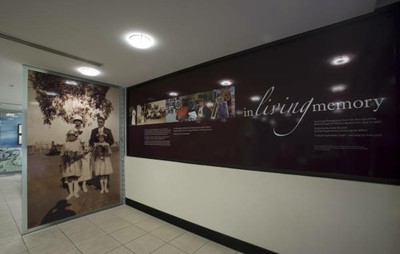
Exhibition entry at State Records Galley, The Rocks. Photographer: Brett Boardman.
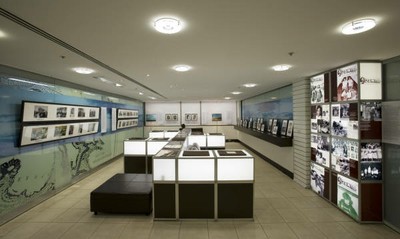
Overview of the main exhibition area at State Records Gallery, The Rocks. Photographer: Brett Boardman.
Future of the exhibition
There is intense interest in the future of the exhibition from Aboriginal people throughout New South Wales.
‘In Living Memory is not the kind of exhibition that you can send out on tour in a crate by itself’, said Susan Charlton, Creative Producer at State Records.
‘And it’s not the kind of exhibition you can quietly close by turning off the light and shutting the door’, she said. ‘It means too much to the community and they don’t want it to end’.
Rather than preparing for the exhibition to close, State Records has begun preparing for the next stage of its development.
The Exhibition Team is commencing a reconsultation process with families, Elders and communities connected to the photos and the tour venues to find ways of keeping the exhibition alive in the community for future generations.
‘We are going back to Community to see what they want’, said Sue Newman, Project Officer – Aboriginal Liaison at State Records.
‘The Aborigines Welfare Board just threw these photos into a box when the Board closed in 1969’, she said. ‘The Board didn’t have an attachment to the photos like the Aboriginal community does. They thought the life of the photographs was over, but a new life was just beginning’.

![]()
This project has been assisted by the Australian Government through the Australia Council for the Arts, its arts funding and advisory body


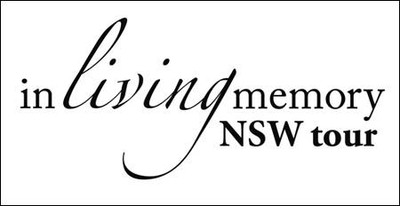
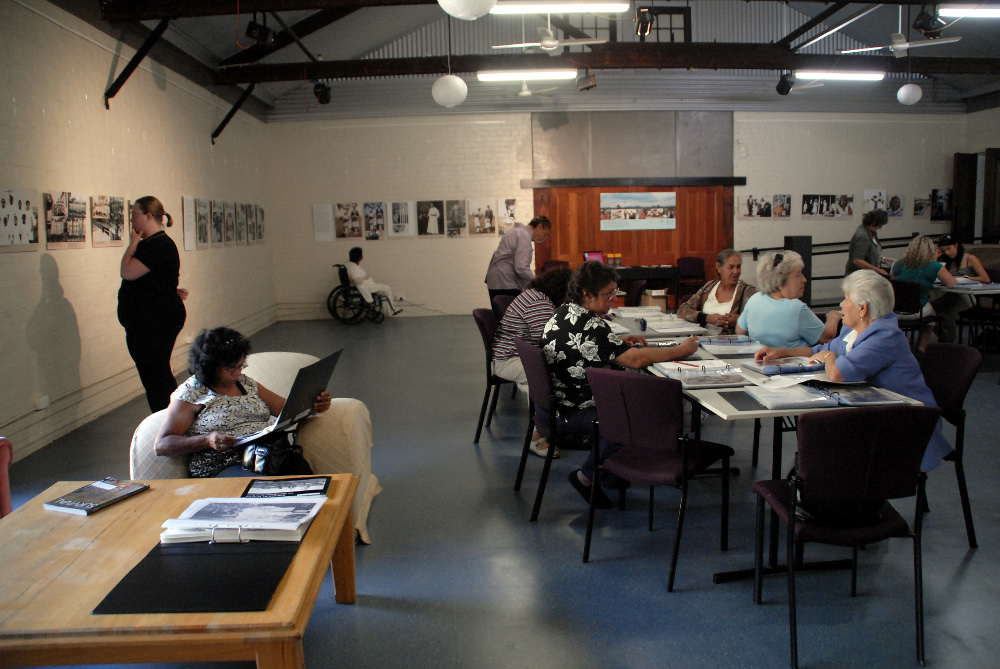
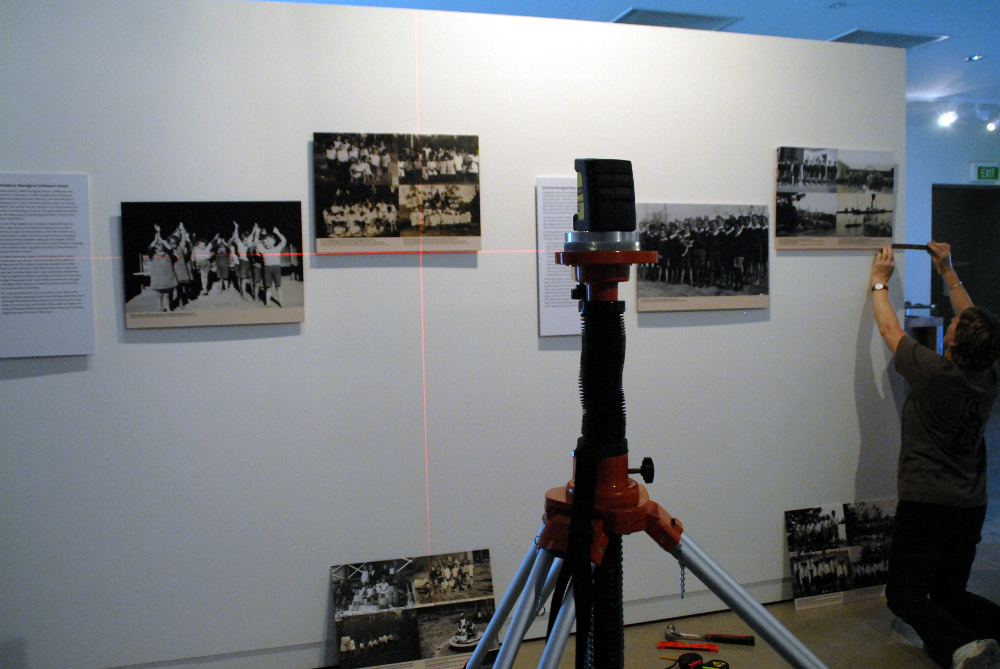
Maria Franklin says:
Where is the State Records Gallery in the Rocks?
I’d like to stop by for a look.
Cheers,
Maria
Anthea Brown says:
Hi Maria,
The Gallery is at 2 Globe Street, The Rocks (pedestrian access only off George Street, near Nurses Walk) but you’d better hurry; the office is closing June 30 and I’m not sure if the exhibition will be dismantled before then.
Thanks